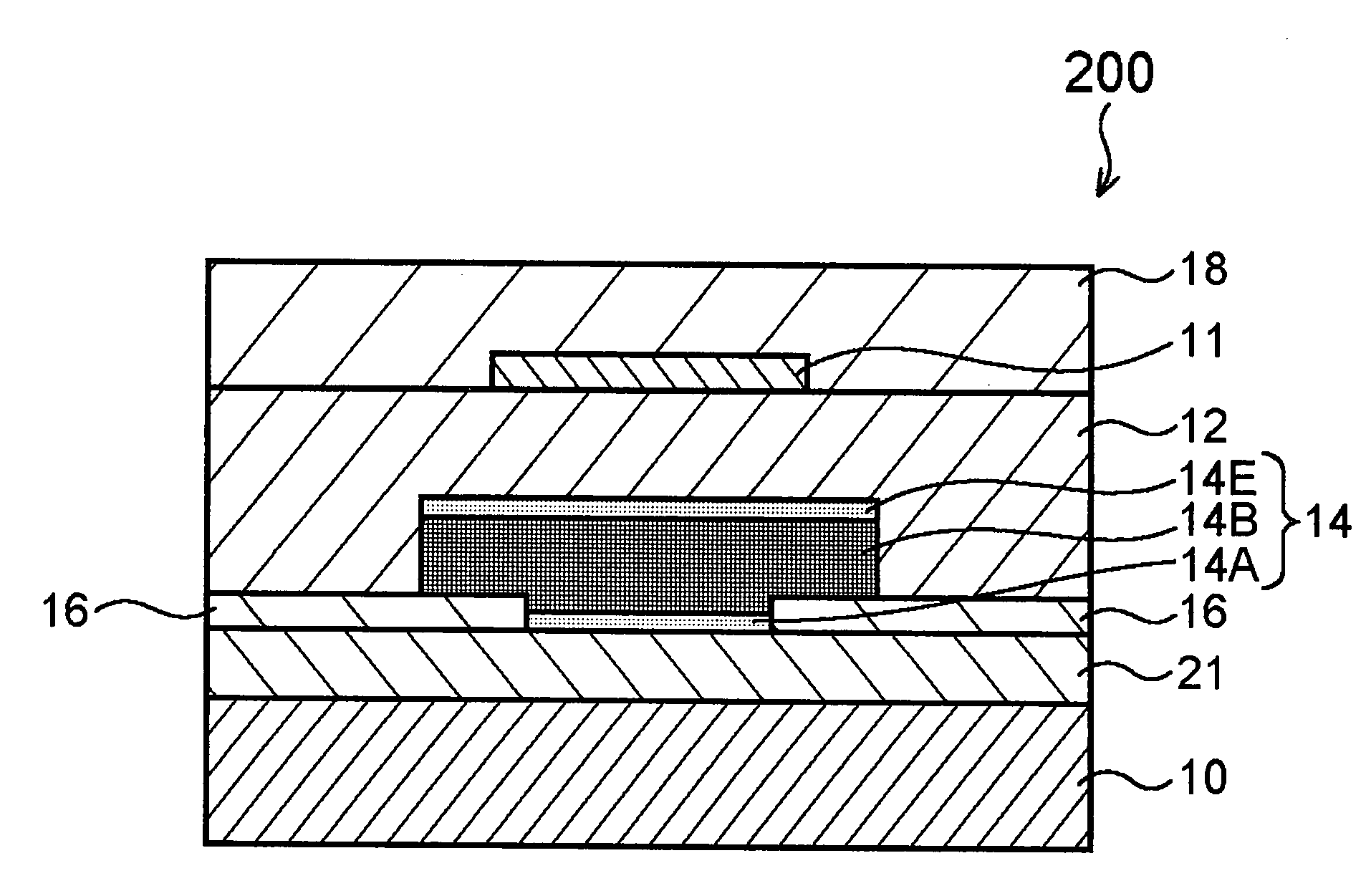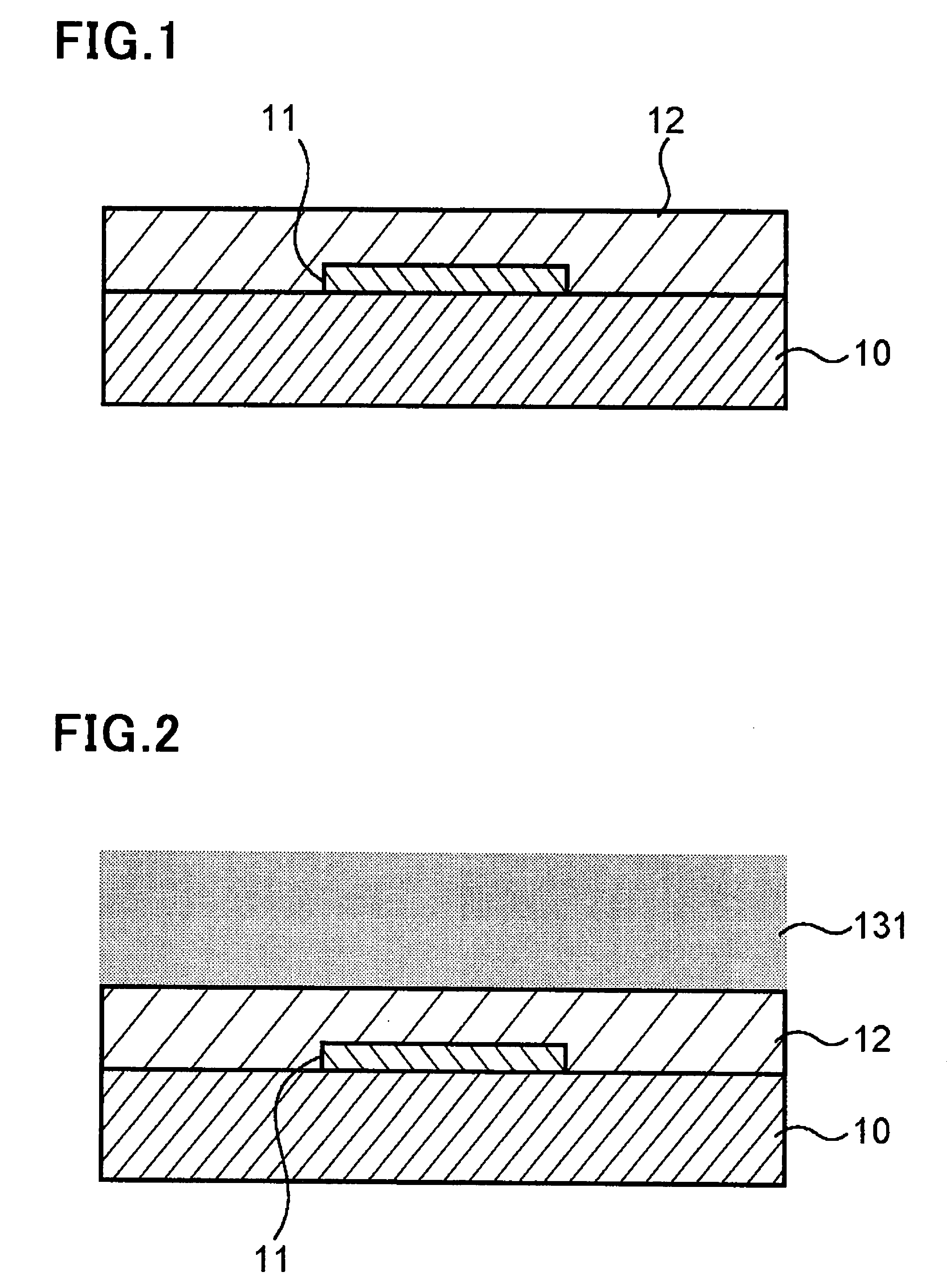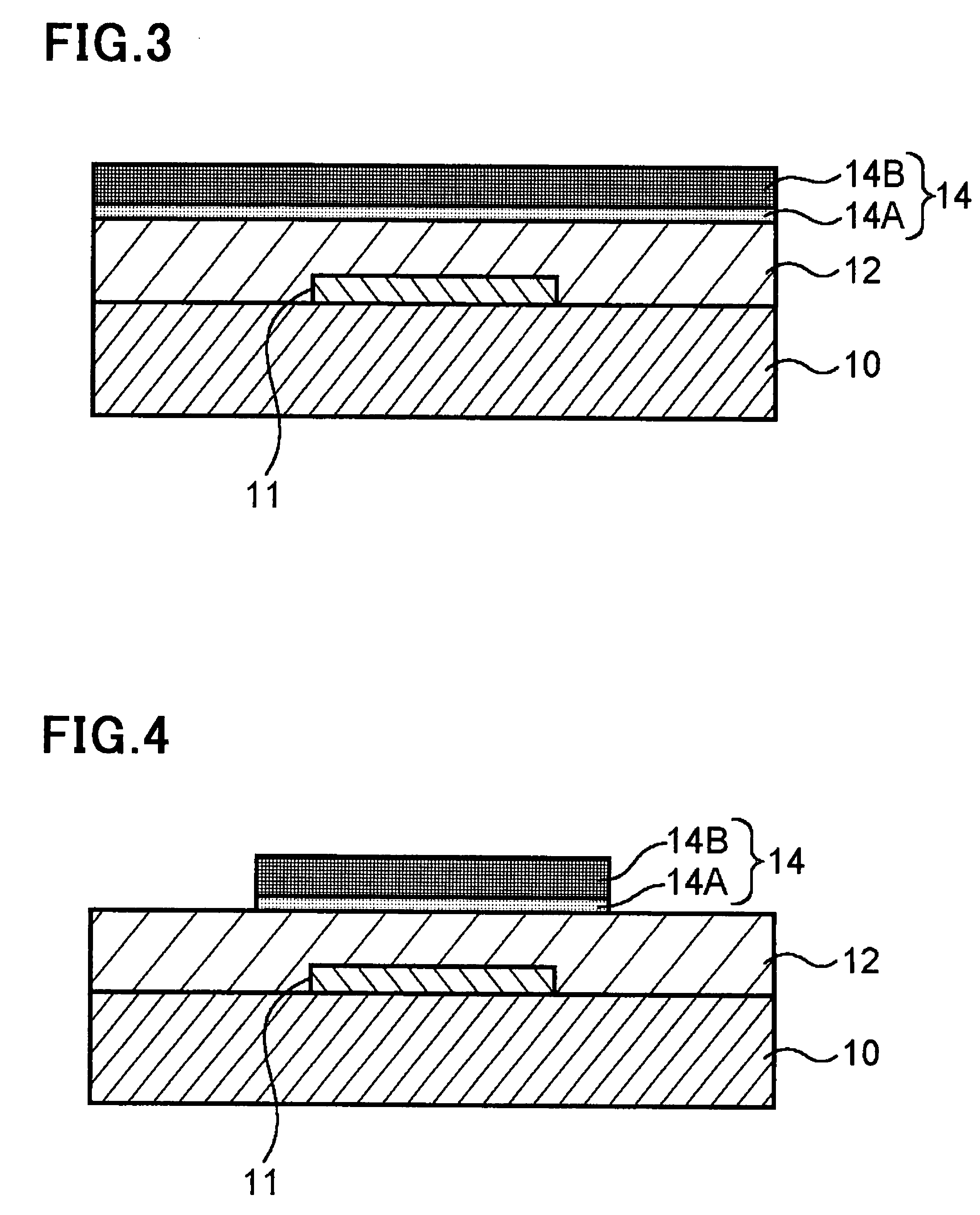Thin-film device and method of fabricating the same
a thin film and film technology, applied in the direction of semiconductor devices, basic electric elements, electrical equipment, etc., can solve the problems of difficult to penetrate an oxide-semiconductor film, insufficient control of oxygen holes, and inability to use cheap glass substrates
- Summary
- Abstract
- Description
- Claims
- Application Information
AI Technical Summary
Benefits of technology
Problems solved by technology
Method used
Image
Examples
first exemplary embodiment
[0050]FIGS. 1 to 8 are cross-sectional views of a thin-film device 100, each showing a step to be carried out in a method of fabricating a thin-film device 100 in accordance with the first exemplary embodiment.
[0051]A thin-film device 100 in the first exemplary embodiment is comprised of a bottom gate stagger type thin-film transistor.
[0052]Hereinbelow is explained a method of fabricating the thin-film device 100.
[0053]First, as illustrated in FIG. 1, a gate metal film is formed on an electrically insulating substrate 10, and then, the gate metal film is patterned into a gate electrode 11.
[0054]Then, a gate insulating film 12 as a first electrical insulator is formed on the electrically insulating substrate 10 so as to cover the gate electrode 11 therewith.
[0055]Then, as illustrated in FIG. 2, first oxidation 131 is applied to the gate insulating film 12 without exposing a device (that is, the electrically insulating substrate 10, the gate electrode 11, and the gate insulating film ...
second exemplary embodiment
[0089]FIGS. 9 to 14 are cross-sectional views of a thin-film device 200, each showing a step to be carried out in a method of fabricating a thin-film device 200 in accordance with the second exemplary embodiment.
[0090]A thin-film device 200 in the second exemplary embodiment is comprised of a top gate stagger type thin-film transistor.
[0091]Hereinbelow is explained a method of fabricating the thin-film device 200.
[0092]As illustrated in FIG. 9, an underlying insulating film (first electrical insulator) 21 is formed on an electrically insulating substrate 10. Then, a source / drain metal film is formed on the underlying insulating film 21, and subsequently, the source / drain metal film is patterned into source and drain electrodes 16 (one of which is a source electrode, and the other is a drain electrode).
[0093]Then, as illustrated in FIG. 10, first oxidation 131 is applied to the underlying insulating film 21.
[0094]The first oxidation 131 is comprised of application of oxygen plasma, f...
third exemplary embodiment
[0111]FIGS. 15 to 19 are cross-sectional views of a thin-film device 300, each showing a step to be carried out in a method of fabricating a thin-film device 300 in accordance with the third exemplary embodiment.
[0112]A thin-film device 300 in the third exemplary embodiment is comprised of a top gate planar type thin-film transistor.
[0113]Hereinbelow is explained a method of fabricating the thin-film device 300.
[0114]First, as illustrated in FIG. 15, an underlying insulating film 21 as a first electrical insulator is formed on an electrically insulating substrate 10.
[0115]Then, first oxidation 131 is applied to the underlying insulating film 21.
[0116]The first oxidation 131 is comprised of application of oxygen plasma, for instance.
[0117]Then, as illustrated in FIG. 16, an oxide-semiconductor film 14 is formed on the underlying insulating film 21 without exposing to atmosphere.
[0118]The first oxidation 131 causes oxygen to be adhered to a surface of the underlying insulating film 21...
PUM
 Login to View More
Login to View More Abstract
Description
Claims
Application Information
 Login to View More
Login to View More - R&D
- Intellectual Property
- Life Sciences
- Materials
- Tech Scout
- Unparalleled Data Quality
- Higher Quality Content
- 60% Fewer Hallucinations
Browse by: Latest US Patents, China's latest patents, Technical Efficacy Thesaurus, Application Domain, Technology Topic, Popular Technical Reports.
© 2025 PatSnap. All rights reserved.Legal|Privacy policy|Modern Slavery Act Transparency Statement|Sitemap|About US| Contact US: help@patsnap.com



